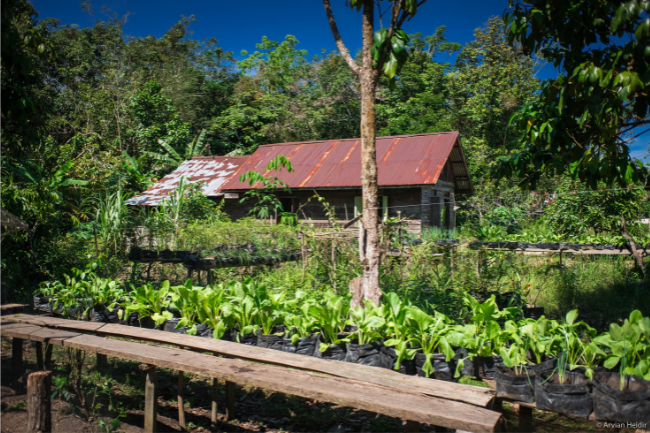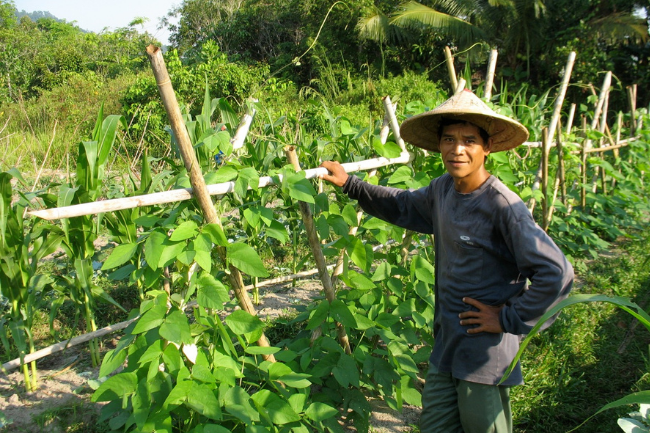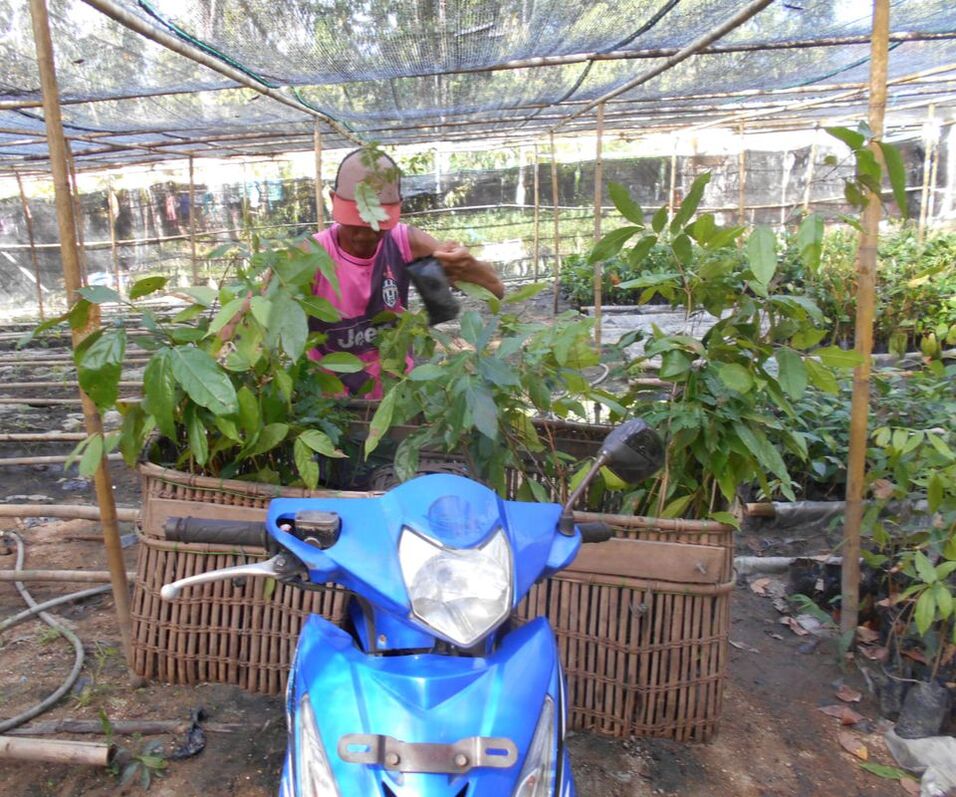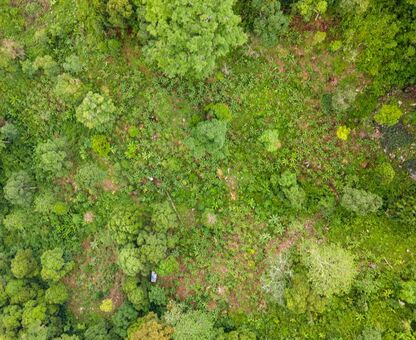Garden to Forest Programme
Quantedge Advancement Initiative supported Health In Harmony, an international nonprofit dedicated to reversing the deforestation of tropical rainforests, to expand an agroforestry programme at Gunung Palung National Park in Indonesia.
Gunung Palung National Park is the only remaining intact lowland alluvial rainforest in Borneo. It houses a nearly complete inventory of all the island's fauna, including an estimated 2,500 of the approximately 54,000 remaining orangutans in Borneo. However, forest cover in the park has been reduced by slash-and-burn agriculture, the main driver of deforestation in the park.
The Garden to Forest programme was launched in 2016 to create rapid reforestation and biodiversity enrichment, while supporting local communities to live in harmony with the forest. It adopts a comprehensive approach by targeting the root cause of deforestation.
Gunung Palung National Park is the only remaining intact lowland alluvial rainforest in Borneo. It houses a nearly complete inventory of all the island's fauna, including an estimated 2,500 of the approximately 54,000 remaining orangutans in Borneo. However, forest cover in the park has been reduced by slash-and-burn agriculture, the main driver of deforestation in the park.
The Garden to Forest programme was launched in 2016 to create rapid reforestation and biodiversity enrichment, while supporting local communities to live in harmony with the forest. It adopts a comprehensive approach by targeting the root cause of deforestation.
Through its local implementing partner, Alam Sehat Lestari (ASRI), Health in Harmony worked with the National Park to reforest 49.5 hectares of community gardens into agroforestry plots. ASRI also provided materials and technical assistance to support slash-and-burn farmers in their transition to sustainable agroforestry practices to secure their livelihoods.
Besides improving local farmers’ livelihoods, the programme also provided co-benefits to the ecosystem, such as climate mitigation through reforestation, wildlife protection, and biodiversity enhancement.
Besides improving local farmers’ livelihoods, the programme also provided co-benefits to the ecosystem, such as climate mitigation through reforestation, wildlife protection, and biodiversity enhancement.
Through this programme, we hope to empower rainforest communities to secure sustainable livelihoods, while enabling them to live harmoniously with nature and wildlife. We also hope that the Garden to Forest programme will inspire others to adopt innovative community- and nature-based solutions to protect ecosystems in Southeast Asia.
Outcomes:
During the one-year programme, Health In Harmony and ASRI assisted 51 local farmers to successfully convert 49.5 hectares of community gardens into agroforestry plots. Altogether, the farmers planted more than 30,000 tree seedlings from 16 native species.
Beyond restoring the canopy in Gunung Palung National Park, the Garden to Forest programme also:
To ensure sustainability of its efforts, ASRI will continue to evaluate the tree seedling survival rates and biodiversity after the programme. It is also developing a livelihood survey to assess the programme’s contribution to improving local farmers’ livelihoods.
During the one-year programme, Health In Harmony and ASRI assisted 51 local farmers to successfully convert 49.5 hectares of community gardens into agroforestry plots. Altogether, the farmers planted more than 30,000 tree seedlings from 16 native species.
Beyond restoring the canopy in Gunung Palung National Park, the Garden to Forest programme also:
- Supported the local farmers in transitioning from logging to sustainable agroforestry practices and live in harmony with the rainforest and its biodiversity;
- Secured sustainable revenue streams for the local farmers as they are able to harvest and sell fruits and other non-timber forest products; and
- Created a buffer to protect primary forest and increased the vital habitat for critically endangered Bornean orangutans and other wildlife.
To ensure sustainability of its efforts, ASRI will continue to evaluate the tree seedling survival rates and biodiversity after the programme. It is also developing a livelihood survey to assess the programme’s contribution to improving local farmers’ livelihoods.
Find out more:
Find out more:





